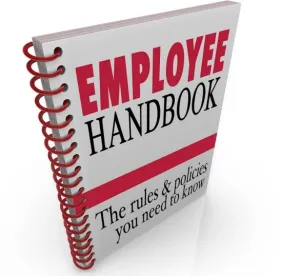We have noted many times over the years how the NLRB’s zeal to review employer policies, or more correctly, fragments of employer policies, for lawfulness has led to nettlesome issues that rarely, if ever, involve actual employees. The results have been absurd and have raised an entire cottage industry of attacks on language by unions and vetting of employer policies for lawfulness.
This may be ending. As we noted yesterday, the NLRB issued a significant decision that will have far-reaching implications for both unionized and non-unionized workplaces. In Boeing Company, 365 NLRB No. 154 (2017), the Board established a new standard for evaluating whether facially lawful workplace rules, policies or employee handbook provisions unlawfully interfere with employees’ exercise of Section 7 rights. In so doing, the Board placed in doubt the applicability of scores of decisions issued in the 13-years since Lutheran Heritage, 343 NLRB 646 (2004), was decided. We previously identified this issue as a case that the NLRB would revisit once a new majority was installed.
“Reasonably Construe” Standard
For the last 14 years the Board evaluated whether an employee would “reasonably construe” the language of a work rule to prohibit the exercise of NLRA rights. If it did, then the rule—regardless of whether it actually restricted Section 7 activity—was found unlawful. Applying this standard, an inconsistent line of cases developed. Take, for instance, a sampling or recent decisions concerning “civility in the workplace.” A rule prohibiting “abusive or threatening language to anyone on Company premises” was lawful, while a rule restricting “loud, abusive or foul language” was not. And, as noted, a policy or fragment of a policy could be found unlawful even if there was no evidence that employees read the policy or were even aware of its existence. It was, in terms of the NLRA, a victimless crime.
Policy Considerations Behind Abandoning The Lutheran Village Standard
The new three member Board majority (Miscimarra, Kaplan and Emmanuel) decided to change this standard because employers were often held to an impossible standard of precision in drafting language in which they would need to foresee any potential impact on any Section 7 right, regardless of how remote. An employer would have to foresee the future, which the majority characterized as requiring “perfection that literally is the enemy of the good.” The Lutheran Heritage standard has been criticized as unworkable by many in the employer community, and by various Board members over the years. So it is not surprising that that a new standard was on the agenda.
New Balancing Test
The Board abandoned the singularly-focused and vague “reasonably construe” standard, in favor of a new balancing test, which would consider the impact of the rule on NLRA rights and an employer’s business justification for the rule. Going forward, in order to provide greater clarity and certainty to all parties, the Board indicated it would categorize the results of future decisions in three ways:
- Category 1: Lawful rules because (i) when “reasonably interpreted,” the rule does not prohibit or interfere with the exercise of NLRA rights or (ii) the potential adverse impact on protected rights is outweighed by justifications associated with the rule. Examples of these types of rules include the no-camera requirement in the Boeing case, where the employer supported its rule with multiple business and security justifications. The Board also found that a rule requiring employees to have “harmonious interactions and relationships” in the workplace, and other rules requiring employees to abide by basic standards of civility would be categorically lawful.
- Category 2: Rules warranting individual scrutiny on a case-by-case basis.
- Category 3: Unlawful rules because they would prohibit or limit NLRA-protected conduct, and the adverse impact is not outweighed by legitimate business justifications (e.g., a rule prohibiting discussion of wages or benefits with another).
The Board proceeded to use this new framework to find that Boeing’s policy restricting the use of camera-enable devices was justified in light of the employer’s security concerns. As it does in every case in which it overrules precedent and/or sets a new standard, the Board weighed whether to apply this new test retroactively, and decided to apply the standard to all pending cases in whatever stage.
Impact of this Decision
It will be some time before the full impact of the decision will be felt as rules are evaluated under the new standard. However, the fact Lutheran Heritage was overruled likely will inhibit unions from attacking employer policies as the forum for these sorts of claims is less receptive.
Because the Board will evaluate the purpose for the rule, employers should consider clearly articulating the reasons for a rule in the policy.
Also, employers may feel less constrained by the thicket created by the previous standard; however, the true impact of Boeing likely will be felt once the host of pending cases work their way through ALJs and the Board under this new paradigm. Only then will employers understand how the Board’s new categories will work. We will keep you posted…there is sure to be more to follow.




 />i
/>i

